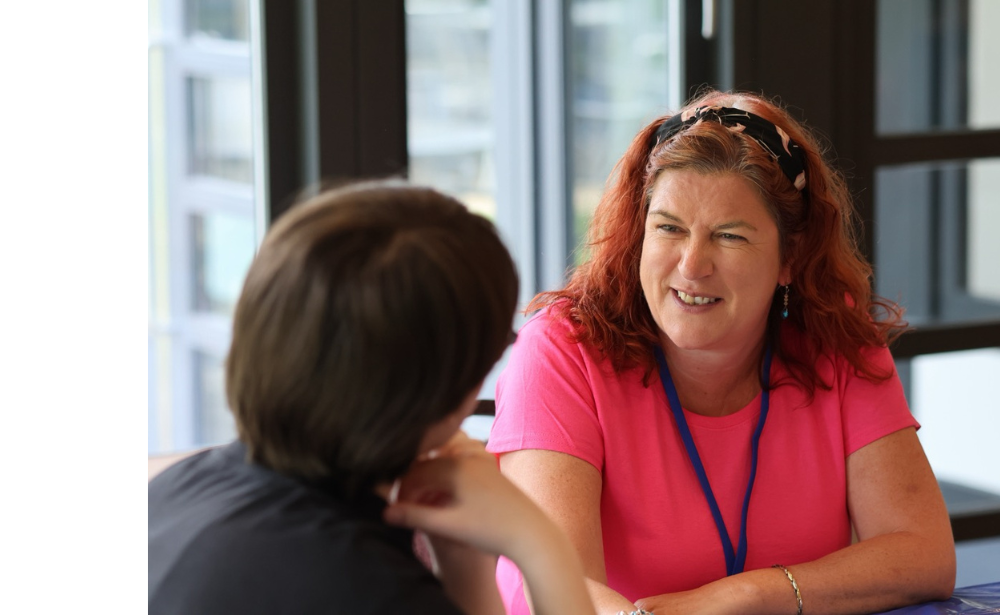Neurodiversity
Is a concept that describes the many different and natural ways of being in the world. Neurodiversity is a term that includes everyone. There is no one “normal” or “healthy” type of human being, brain or body. Autistic people make up a significant minority of our neurodiverse world.
The Autistic Experience
Autistic people have a particular brain type/ neurology that influences how they process sensory information, how they think, move, and communicate. Autistic ways of being are not disordered or deficient.
It is not accurate or helpful to think about an Autistic people being on a spectrum or being ‘high’ or ‘low functioning.’ Autistic people are often described as having “spiky profiles.” This means that an Autistic person can be really strong in one area and weaker in another area.
Autistic communication is valid. Many Autistic people speak in longer conversation turns when sharing about an interest. Conversations are easier when talking about something interesting and when feeling comfortable with others. Many Autistic people find it difficult to use spoken words all the time. Some may experience situational mutism (unable to use mouth words in certain situations) / non-speaking or be semi-speaking – this means that speaking is not always a reliable way of communicating. Some Autistic people don’t use mouth words at all. Many Autistic people will be multi-modal communicators i.e. using gestures, signs, pictures, texting, typing, apps to communicate. Autistic people may use lower levels of eye contact and body language than non-autistic people.
How to support an Autistic family member
- Think about the things that help you and your family member have a good day. This gives clues into what works and what is important. Do more of the things that help you feel good and ensure your family member has the same opportunities.
- Have positive interactions – seek to validate and ensure they are seen and heard in whatever form of communication they choose. Sometimes, that might be sounds or gestures. Mouth words are not the only or best form of communication.
- Routines can help bring a predictable pattern to the day or parts of the day. Look at the routines that help the person and maintain these. Be flexible. You can change things, with your family member, if that suits you and them. Prepare well for times when things will be different.
- For parts of the day that are more stressful, work out a routine that is a good match for the person and the situation and that takes account of the person’s needs and interests. Be patient.
- Everyone needs to feel a sense of belonging. Socialising may be very different for neurodivergent people. Some may prefer socialising in text or online. Some may prefer a group focused on a strength or an interest. Find out what suits your family member.
- When things are too much, when needs have not been met, when the sensory environment is too much, an Autistic person may experience overwhelm. Meltdowns and shutdowns are signs of distress that are not under the person’s control. They are a sign that things have become too much. The Autistic person needs you to be supportive and help them get through this time through low arousal support and feeding the senses . They may need to withdraw to a quiet space and rest and recover. After these events, be compassionate and ask how your family member about what they need. Try to understand the stressors that are building up and leading to the meltdown and then take action to reduce these to reduce the likelihood of future overwhelm.
- Seek to understand their unique sensory profile and put in supports where needed such as ear defenders or ear plugs if overwhelmed by noises or sun glasses if sensitive to lighting.
If you would like to find out more about the Autistic Experience and how you can support an Autistic family member, come to one of our autism workshops or courses.
Sign up for news and updates
Subscribe to our newsletter for regular updates.

